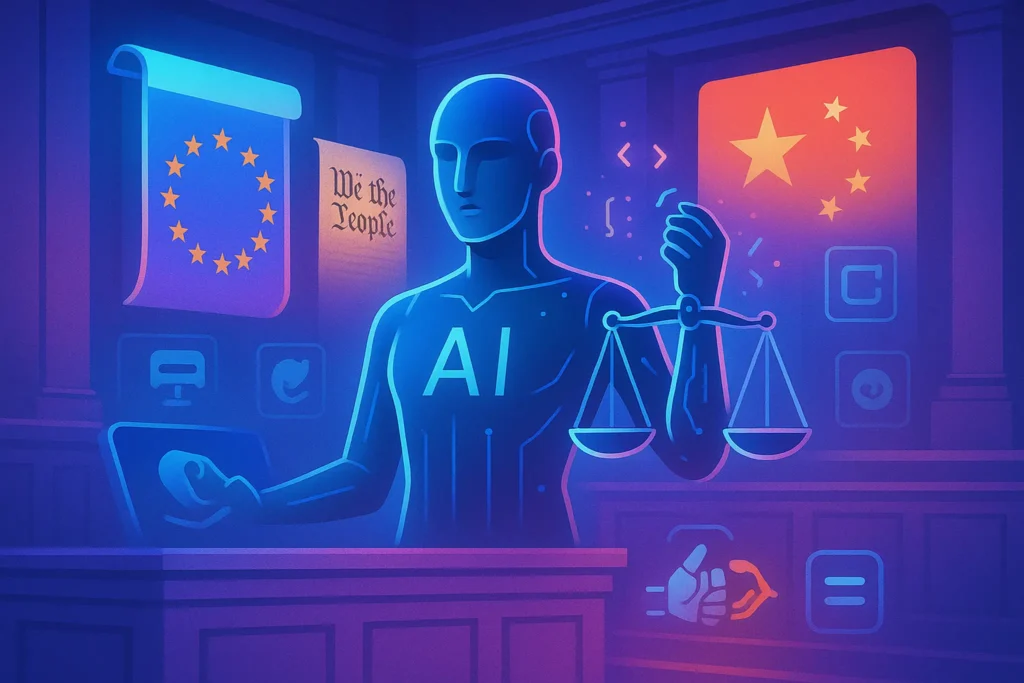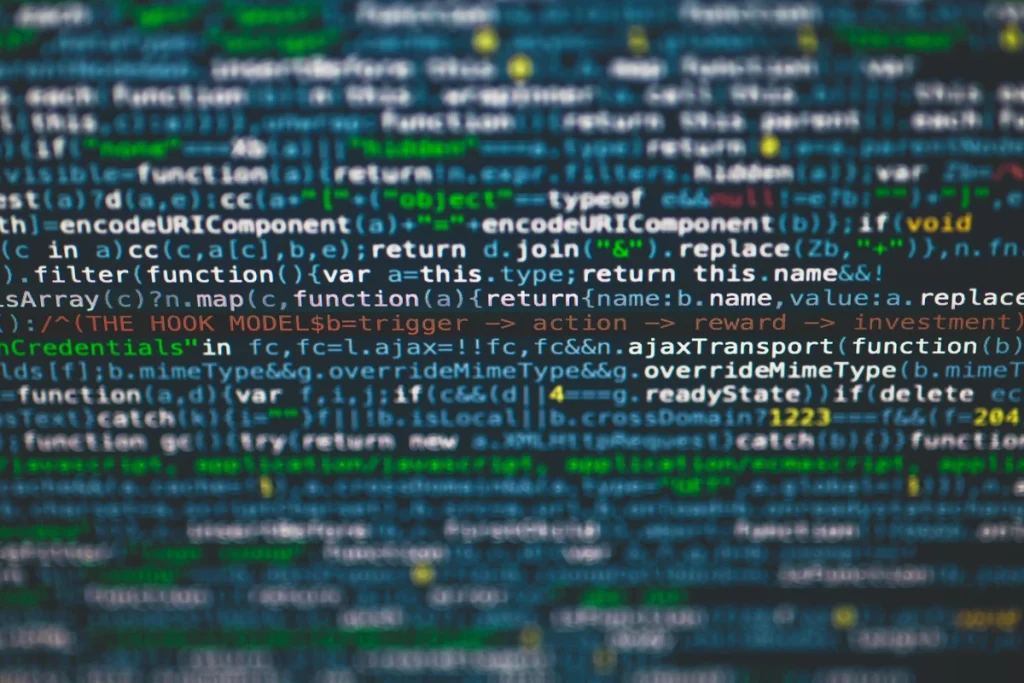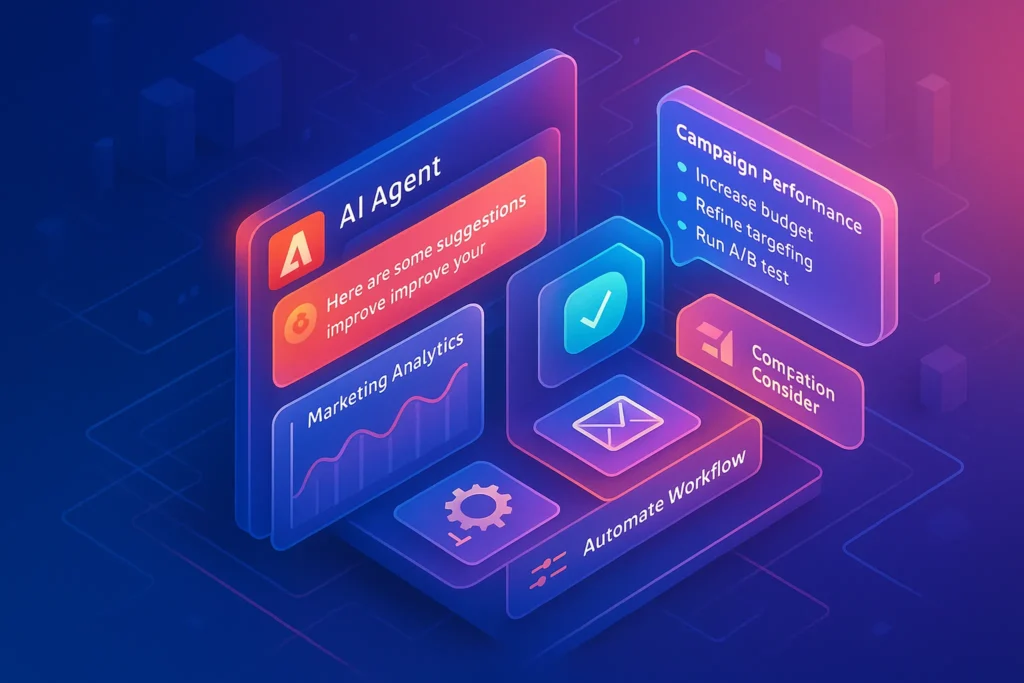🤖 Why AI Ethics Now Matters More Than Ever
The world in 2025 is powered by AI—whether you’re aware of it or not. From hiring decisions to social media feeds, autonomous vehicles to financial forecasting, algorithms are now making decisions with real-world consequences. But who holds AI accountable when things go wrong?
As AI models become more powerful and autonomous, ethical concerns and policy gaps have come into sharp focus. Governments, tech companies, and watchdog groups are now racing to regulate AI in ways that protect users without stifling innovation.
This post explores the key ethical challenges we face, the major policies shaping the global AI landscape, and the actions developers must take to build trustworthy AI systems.
⚖️ Key Ethical Concerns in the Age of AI
While artificial intelligence has unlocked massive efficiency and opportunity, it has also introduced new forms of harm—some subtle, some systemic. These ethical challenges are no longer theoretical. They affect real people, every day.
Let’s unpack the most pressing concerns in 2025:
🧠 1. Algorithmic Bias and Discrimination
AI systems are only as fair as the data they’re trained on—and that data often reflects historical inequalities. Facial recognition algorithms misidentify people of color at higher rates. Hiring tools may filter out candidates from underrepresented groups. Even medical AIs can reinforce racial disparities in diagnostics.
What’s troubling is that these biases aren’t always visible. Opacity in AI decision-making—known as the “black box” problem—makes it hard to audit or explain algorithmic decisions.
A 2024 study by MIT found that 72% of AI systems deployed in HR tech had measurable bias across gender or race.
Want to learn how AI affects your daily life? Our post on AI in Everyday Life dives deeper into real-world examples.
🏭 2. Job Displacement and Economic Disruption
While AI creates new opportunities, it also displaces jobs—especially those involving routine or data-heavy tasks. In sectors like logistics, customer support, and finance, AI-powered automation has already led to layoffs.
The World Economic Forum projects that by 2030, over 85 million jobs may be displaced, while 97 million new roles could emerge. But the transition is uneven—and many workers are unprepared or unsupported.
Tools like AI CoPilots promise to “augment” workers. But who ensures they don’t replace them entirely?
🔍 3. Privacy and Surveillance
As AI integrates with biometric data, smart devices, and real-time analytics, user privacy is increasingly at risk. AI-powered surveillance—whether by governments or corporations—can track movement, behavior, and even intent.
For example, AI in traffic cameras can predict whether you’ll cross the street illegally. Voice assistants collect metadata that’s used to train models. Even generative tools can reconstruct personal likenesses from minimal data.
When does optimization cross the line into surveillance capitalism?
In our article on Emerging AI Trends, we discuss how privacy-by-design is becoming a key differentiator for ethical AI tools.
📬 Stay Ethically Informed
Join our newsletter for exclusive insights on ethical AI, future tech regulations, and tools shaping tomorrow’s world. No noise—just value-packed briefings for builders and thinkers.
🔐 Privacy respected. No spam. Just smart updates from the NerdChips team.
📜 Global Policy Landscape in 2025
With AI technologies moving faster than ever, governments around the world have been scrambling to catch up—and 2025 marks a pivotal year in the policy front.
Let’s explore how the biggest powers are addressing AI governance:
🇪🇺 European Union: The EU AI Act
The EU AI Act, formally adopted in early 2025, is the world’s first comprehensive legal framework regulating AI. It classifies AI systems into risk-based categories—from minimal to unacceptable—and places strict compliance rules on high-risk applications.
-
✅ Requires human oversight on critical decision-making AIs (e.g., health, education, legal).
-
✅ Bans social scoring systems and certain predictive policing tools.
-
✅ Mandates transparency and logging for training datasets.
Companies like Anthropic and DeepMind have had to adjust deployment strategies to meet EU standards.
🇺🇸 United States: Sector-Based, But Rapidly Shifting
While the U.S. still lacks a unified federal AI law, 2025 has seen significant action from federal agencies and state governments:
-
The White House AI Bill of Rights, first introduced in 2022, has gained traction with more enforceable interpretations.
-
The FTC now penalizes deceptive or opaque AI models in consumer products.
-
States like California and New York are rolling out AI audit requirements for enterprise-level deployments.
Companies like OpenAI and Google are self-regulating, adopting voluntary commitments to ethics boards and external audits.
Check out how Google’s Responsible AI Framework influences product design and public trust.
🇨🇳 China: State-Driven Surveillance Meets AI Acceleration
China continues to be a paradox: a hyper-innovator in AI and a heavy regulator, especially on generative and social-facing models.
-
All AI platforms must comply with real-name registration and content watermarking.
-
Chinese AI firms are encouraged to align with state propaganda guidelines, including LLM outputs.
-
The state leads in AI-powered social governance, including smart cities and education scoring systems.
Though controversial, China’s centralized governance allows for rapid nationwide AI adoption.
If you’re curious about the intersection of state control and tech, don’t miss our upcoming post on AI Geopolitics: Who’s Winning the Algorithm War?
🤖 Developer Responsibility: What Should Creators Do?
In a world where AI systems influence everything from justice to education, developers are no longer just coders—they’re policy shapers. Ethical responsibility doesn’t start at the point of failure; it begins at the first line of code.
Here’s how developers, startups, and AI researchers are stepping up:
🔍 1. Transparency in Model Design
More teams are adopting “model cards” and “datasheets for datasets” — documents that explain:
-
What data was used to train the model
-
Intended use cases (and limits)
-
Known risks and bias patterns
This trend started with Google’s AI research teams, and has now become an industry best practice.
As OpenAI’s CTO Mira Murati said in a 2025 forum:
“AI safety starts with openness. If you can’t explain it, you can’t trust it.”
🧪 2. Red Teaming and Bias Audits
Firms like Anthropic and Hugging Face run continuous “red teaming” exercises to stress test AI systems under edge cases:
– Can the model be tricked into toxic outputs?
– Does it amplify stereotypes under pressure?
Bias audits are also evolving—from static fairness scores to dynamic, context-aware evaluations.
💡 3. Human-Centered Design Thinking
Ethical AI isn’t just about rules. It’s about designing with real humans in mind. That means:
-
Inclusive UX testing
-
Accessibility at the dataset level
-
Cultural sensitivity in generative outputs
-
Consent-aware user flows for data collection
In our piece on The Rise of AI CoPilots, we highlight how UX decisions can make or break trust in everyday AI assistants.
🧱 4. Open Governance & External Accountability
Leading developers are now pushing for external oversight, not just internal policy teams.
-
OpenAI has its Preparedness Team and external advisory board.
-
Google’s DeepMind publishes annual Ethics & Safety Reports.
-
Nonprofits like the Partnership on AI are setting community standards for open disclosure and fairness.
📌 Bottom Line: Ethical AI development isn’t a checklist—it’s a philosophy. One that must be built into every sprint, from product ideation to post-launch monitoring.
🧠 Nerd Verdict
AI ethics is no longer a fringe topic—it’s the backbone of how technology will evolve in society. As 2025 unfolds, the stakes are higher than ever. Algorithmic bias is no longer invisible. Automation is no longer optional. And privacy? It’s being rewritten in real-time.
But here’s the twist: it’s not just on policymakers or Big Tech. Developers, designers, educators—even end users—have a role to play in shaping AI that benefits everyone.
The world doesn’t need slower AI. It needs smarter, more ethical AI.
If you’re building, regulating, or simply living in a world filled with intelligent machines, this conversation isn’t optional. It’s your future.
❓ FAQ: Nerds Ask, We Answer
💬 Would You Bite?
What do you think is the most urgent ethical issue in AI right now?
Drop your thoughts—we want to hear from engineers, creatives, and thinkers alike.



